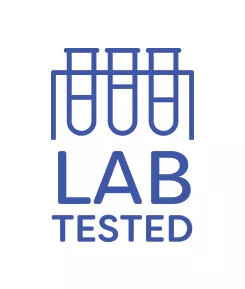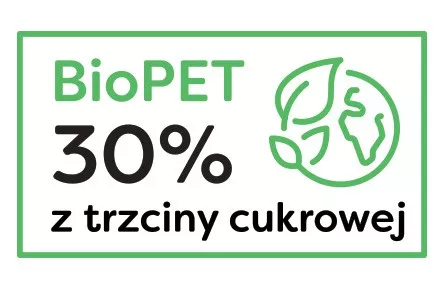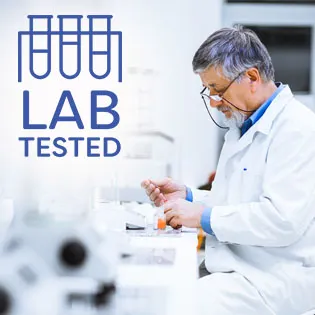Looking for a way to improve your overall condition? Cod liver oil - rich in omega-3 fatty acids and vitamins A and D, it will take care of your cardiovascular system, brain, eyesight and immunity. How else can it help? Reach for Cod Liver Oil 1000 mg and feel the difference
Cod liver oil is a very good source of omega-3 fatty acids (DHA and EPA) and vitamins A and D. Eicosapentaenoic acid (EPA) and docosahexaenoic acid (DHA) contribute to the proper functioning of the cardiovascular system. Vitamin A supports good vision and, together with vitamin D, helps the immune system to function optimally. Omega-3 fatty acids have been shown to have cardioprotective effects - including anti-arrhythmic effects, lowering blood pressure and stabilising atherosclerotic plaque. They have also been noted to exhibit anticoagulant potential [1]. The American Heart Association recommends the consumption of two fish meals per week for prevention or supplementation with 1 g EPA and DHA per day for people with cardiovascular complaints [2]. It is worth noting that docosahexaenoic acid (DHA) also supports brain function and good vision. It plays a key role during pregnancy and early childhood by directly influencing cognitive function and visual acuity (it contributes to normal retinal development). DHA also has neuroprotective properties by helping, among other things, to preserve the structure and physiology of neurons and glial cells, which is particularly important during ageing and in neurodegenerative diseases [3].
Cod liver oil is rich in vitamin A, which supports a number of physiological processes - including helping to maintain normal iron metabolism, protecting the conjunctiva from infection, helping to see well in poor light conditions, and regulating the immune system [4]. Vitamin D, in turn, supports the modulation of the innate and acquired immune response. Its deficiency can lead to increased susceptibility to infection [5]. In addition, it plays an important role in calcium metabolism and bone mineralisation, and contributes to the microbiome - thereby influencing immune function [6]
Docosahexaenoic acid (DHA) and eicosapentaenoic acid (EPA) belong to the long-chain omega-3 polyunsaturated fatty acids [7]. The main sources of these precious acids are oily fish. Cod liver oil is one of the best sources of omega-3 fatty acids (DHA and EPA) and is additionally rich in vitamins A and D. The tradition of its use as a product to support the overall health of the body dates back to the Viking Age . The oil was an important part of the Nordic diet. Due to its beneficial properties, it was called the 'gold of the ocean' [8].
Vitamin A is found in animal and plant products - a good source is fish liver, others include chicken egg yolks, milk, cheese and mangoes, yams and corn [4]. Vitamin D is mainly obtained by dermal synthesis, which occurs during sun exposure. It can also be obtained through the consumption of oily fish or egg yolks, but often dietary sources are not sufficient to cover the daily requirement [9]. Cod liver oil supplementation may be helpful in ensuring an adequate supply of omega-3 fatty acids, vitamin A and vitamin D.
Cod Liver Oil 1000 mg is a food supplement in soft capsule form containing oil extracted from sustainably fished wild Atlantic cod (Gadus morhua). It is produced in Norway using molecular distillation and manufactured in accordance with the GOED (World EPA and DHA Omega-3 Organisation) monograph. It contains a high concentration of essential fatty acids (DHA and EPA) in a highly bioavailable triglyceride (TG) form. In one capsule you will find as much as 1,000 mg of cod liver oil (including: 70 mg EPA and 100 mg DHA) as well as 270 µg vitamin A (34% RWS) and 400 IU vitamin D (200% RWS). The supplement is enriched with a natural lemon flavour to neutralise the fishy aftertaste. It is available in three versions: 180, 90 or 60 capsules, so you can choose a pack for your preferred supplementation time. We recommend taking 1-2 capsules daily with a meal.
[1] Harris W. S. et. al. (2008). Omega-3 fatty acids and coronary heart disease risk: clinical and mechanistic perspectives. Atherosclerosis, 197(1), 12-24. https://doi.org/10.1016/j.atherosclerosis.2007.11.008
[2] Ajith T. A., & Jayakumar T. G. (2019). Omega‐3 fatty acids in coronary heart disease: Recent updates and future perspectives. Clinical and Experimental Pharmacology and Physiology, 46(1), 11-18. https://doi.org/10.1111/1440-1681.13034
[3] Echeverría F. et. al. (2017). Docosahexaenoic acid (DHA), a fundamental fatty acid for the brain: New dietary sources. Prostaglandins, Leukotrienes and Essential Fatty Acids, 124, 1-10. https://doi.org/10.1016/j.plefa.2017.08.001
[4] Gilbert C. (2013). What is vitamin A and why do we need it? Community Eye Health; 26(84):65. PMID: 24782580; PMCID: PMC3936685.
[5] Aranow C. (2011). Vitamin D and the Immune System. Journal of Investigative Medicine; 59(6):881-886. doi:10.2310/JIM.0b013e31821b8755
[6] Lucas RM. et. al. (2014). Vitamin D and immunity. F1000Prime Rep.; 6:118. doi: 10.12703/P6-118. PMID: 25580272; PMCID: PMC4251419
[7] Zhang T. T., Xu J., Wang Y. M. & Xue C. H. (2019). Health benefits of dietary marine DHA/EPA-enriched glycerophospholipids. Progress in lipid research, 75, 100997. https://doi.org/10.1016/j.plipres.2019.100997
[8] Hernigou P., Auregan J.C. & Dubory A. (2019). Vitamin D: part II; cod liver oil, ultraviolet radiation, and eradication of rickets.
[9] Ismailova A., White J.H. (2022). Vitamin D, infections and immunity. Rev Endocr Metab Disord 23, 265–277. https://doi.org/10.1007/s11154-021-09679-5








